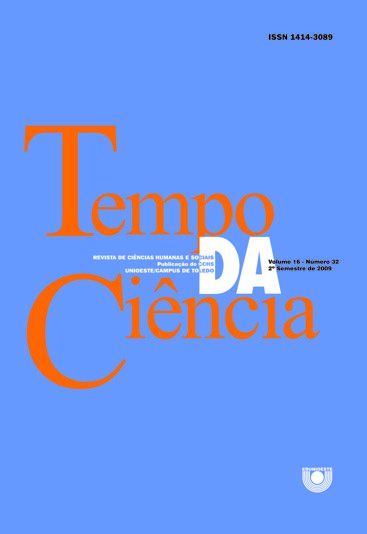Da Filosofia do Conhecimento de Kant à Filosofia da Ciência de Popper
DOI:
https://doi.org/10.48075/rtc.v16i32.8802Keywords:
metafísica, verdade, racionalismo, crítica, conhecimento, ciência.Abstract
Critical rationalism is a contemporary heir to the problem set in the modernphilosophy of knowledge, both ontologically and epistemologically. The intention of thispaper is to show the deep relationship, both from the standpoint of the problem, as thetheoretical framework between these philosophies. Popper realized that Kant was notconcerned to investigate because you can see the world, but as we progress in research. Likethe view that the thesis of Kant, the distinction between metaphysics and knowledge containsthe theoretical framework to bring metaphysics to criticism. The highest identity betweenthe two conceptions in mutual consideration of rational criticism as a synonym for philosophy.Popper makes a second Copernican revolution, to the extent as proposed by Kant. While heproposed that our ideas are not guided by the world, in contrast, the driven ones, Popperproposed that progress towards the truth does not occur by demonstrating that the worldbehaves according to our ideas, rather, that our ideas are fallible discordant states of affairsin the world. Thus, contemporary philosophy is at the same time, the exacerbation of thecritical attitude of modernity and its overcoming.Downloads
Published
How to Cite
Issue
Section
License
Aviso de Direito Autoral Creative Commons
Política para Periódicos de Acesso Livre
Autores que publicam nesta revista concordam com os seguintes termos:
1. Autores mantém os direitos autorais e concedem à revista o direito de primeira publicação, com o trabalho simultaneamente licenciado sob a Licença Creative Commons Attribution que permite o compartilhamento do trabalho com reconhecimento da autoria e publicação inicial nesta revista.
2. Autores têm autorização para assumir contratos adicionais separadamente, para distribuição não-exclusiva da versão do trabalho publicada nesta revista (ex.: publicar em repositório institucional ou como capítulo de livro), com reconhecimento de autoria e publicação inicial nesta revista.
3. Autores têm permissão e são estimulados a publicar e distribuir seu trabalho online (ex.: em repositórios institucionais ou na sua página pessoal) a qualquer ponto antes ou durante o processo editorial, já que isso pode gerar alterações produtivas, bem como aumentar o impacto e a citação do trabalho publicado (Veja O Efeito do Acesso Livre).
Licença Creative Commons
Esta obra está licenciada com uma Licença Creative Commons Atribuição-NãoComercial-CompartilhaIgual 4.0 Internacional, o que permite compartilhar, copiar, distribuir, exibir, reproduzir, a totalidade ou partes desde que não tenha objetivo comercial e sejam citados os autores e a fonte.

